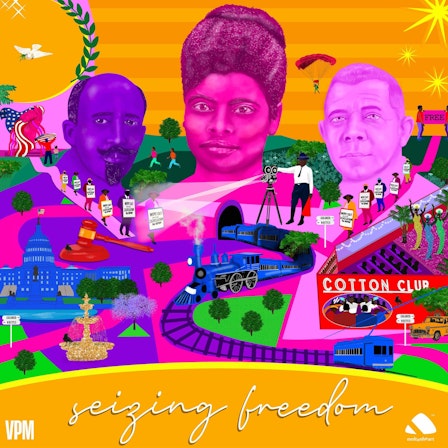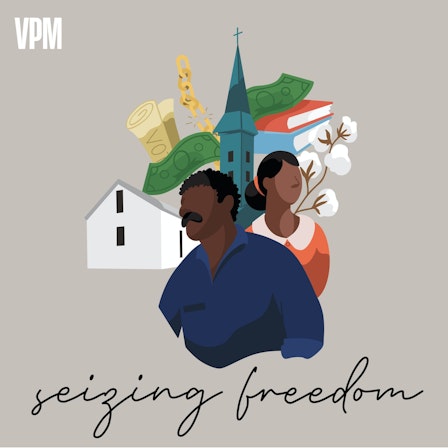
Highlighting true stories of Black people’s fight for liberation, progress and joy from the Civil War to the Civil Rights Movement and... more
Episodes
Season 2 Finale. Kidada speaks with activist and organizer Mariame Kaba about the ways many of us practice abolition without... more
African Americans couldn’t seize much universal freedom as the brick-and-mortar of Jim Crow walled them off from their rights. Still,... more
Kidada speaks with health reporter Julia Craven about health and wellness for African Americans, both historically and in the context... more
Attendees of the 1914 “Fifty Years of Negro Health Improvement in Preparation for Efficiency” conference, with speakers including Booker T.... more
Kidada speaks with writer, poet and social commentator Saeed Jones about the many facets of Black masculinity, how it has... more
Black workers were expected to take on “respectable” employment in the early twentieth century, essentially a racist dog whistle to... more
Kidada speaks with New York Times columnist Jamelle Bouie about the legacies of discriminatory housing policies in the United States... more
In the late 19th and early 20th centuries, several million African Americans left the South for the North and West.... more
Today we're sharing an episode of Home. Made., a podcast that explores the meaning of home and what it can... more
Kidada speaks with historian Paula Austin about the shift in American society to protect childhood innocence in the early 1900s,... more
Many Black Americans at the end of the nineteenth century relied heavily on themselves, prioritizing self-determination and securing their collective... more
Kidada speaks with historian Blair L.M. Kelley about how segregation grew out of pushback against Black upward mobility, and how... more
With white supremacist strategies for segregated societies solidifying in towns across America’s South, Black people needed to respond in ways... more
Kidada speaks with Kinshasha Holman Conwill, the deputy director of the Smithsonian’s National Museum of African American History and Culture;... more
The 1893 World’s Fair in Chicago was an opportunity for the United States to showcase its spectacular growth and signal... more
Kidada speaks with Adam Serwer, staff writer at The Atlantic who covers race, politics and justice, about the role of the Black... more
Black southerners and their allies were experiencing the brick and mortar of Jim Crow being installed in real time. Racial... more
Coming February 1, 2022. The promises of Reconstruction were left unfulfilled. The violent system of Jim Crow was being built in... more
While we work on the next season of Seizing Freedom, we think you'll enjoy listening to the podcast, 1865. In... more
Season finale. The "freedom generation" of African Americans who were the first to experience emancipation knew that their fight for... more
A discussion of the central role African Americans played in securing constitutional change for their civil and political rights during... more
The 13th Amendment abolished slavery in 1865, but African Americans knew the “freedom” of emancipation was incomplete without universal citizenship... more
The Reverend shares what church has meant to the Black community, both historically and currently, as well as how to... more
How a thirst for soul liberty and the freedom to worship as they saw fit sustained Black Americans through centuries... more
Conversation about family histories and education, how many of the stereotypes that have been associated with Black people in the... more
Education was regarded as the "real liberation" by many African Americans following emancipation from slavery, and they were willing to... more
Kidada speaks with Princeton Historian Tera Hunter about how Black workers wanted to shape their working lives after the Civil... more
Further exploring the stakes of making a living as a Black person following emancipation and how, despite violent retaliation in... more
How newly emancipated African Americans established communities and expanded their labor on their own terms to build livelihoods for themselves... more
Photography professor Deborah Willis speaks with Kidada about the power of photography during the Civil War era, and the stories... more

Listen now on
Description
Conversation about family histories and education, how many of the stereotypes that have been associated with Black people in the United States... more